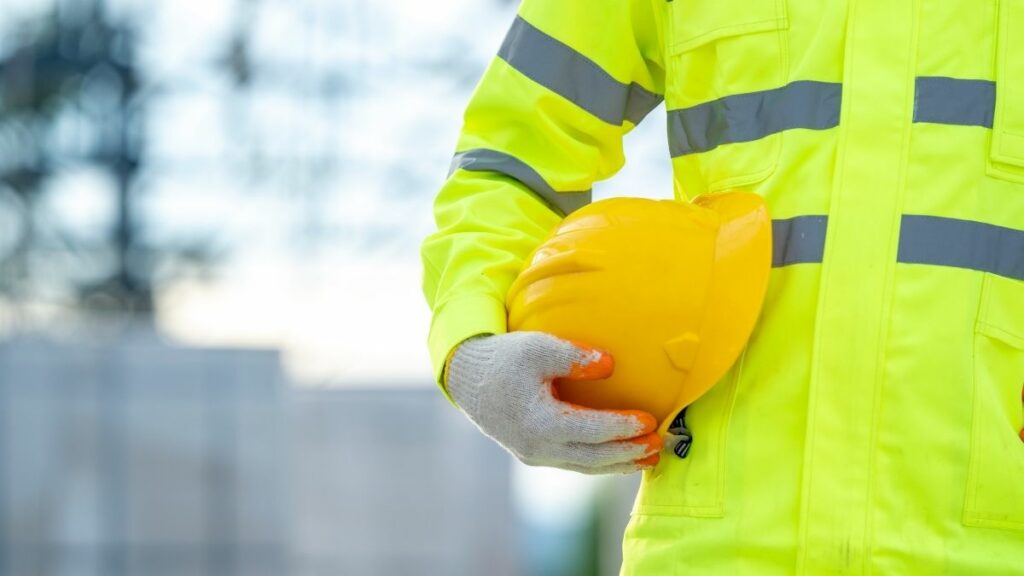The importance of Personal Protective Equipment (PPE) has been highlighted over the last eighteenth months due to the Coronavirus pandemic, from asking the public to wear a mask, to ensuring that the NHS and other key workers have a sufficient supply of PPE, to help save lives.
However, the importance of PPE is nothing new and it has long been established in a wide range of environments.
Construction site safety
Construction, by its very nature, can be a dangerous place to work, and even a seemingly insignificant bump to the head may result in a significant injury later on. Although there are regulations and other control mechanisms already in place to ensure the safety of individuals on construction sites, there is always a continued risk of a head injury being sustained, particularly if the correct protection is not provided or used.
We have outlined the effects of brain injury and the importance of safety in the workplace.
Sustaining an injury
The impact of any type of brain injury can have life-changing impacts for both the individual and their loved ones, which is why Headway, and leading safety manufacturer Centurion, are working together to raise awareness of using and maintaining hard hats while on construction sites. They hope to have a week dedicated every year for site workers to audit their hard hats, check they are in date (yes, they can expire), in good condition, and fit properly.
A survey conducted by Headway in 2020 found that:
- Following a head injury at work, 52% of respondents did not report the incident to their manager and only 6% sought medical attention;
- 18% of those surveyed (86 people) had experienced a blow to the head at work;
- of those, only half reported the injury to their manager, and only a quarter sought medical attention;
- over half of those who didn’t report the incident to their manager said they didn’t think the injury was serious enough, suggesting that they may not have been fully aware of the potential effects of even a mild traumatic brain injury;
- 58% of respondents applied stickers or a marker pen to their hard hats, which is against advice;
- over a quarter of hard hat wearers did not know where to find their hard hat’s expiry date or were unaware it had one;
- almost one third of respondents wore unlicensed headwear underneath their hard hat (which can impair the fit and reduce effectiveness);
- 23% of participants did not know what to do in the event of sustaining a blow to the head.
What can be done to reduce the likelihood of a brain injury?
- Comply
All construction workers, with the exception of turban wearing Sikhs, must be provided with, and should wear suitable head protection.
Head protection provided to construction workers must:
- Be in good condition;
- fits properly and is worn properly;
- not stop you also wearing hearing protectors when needed;
- only be obtained from a reputable supplier;
- be stored correctly;
- be CE marked (which confirms that it meets the basic safety requirements)
- Know what to do
If you think you have a concussion there are three steps that must be taken:- Stop to recognise how you feel;
- report it to your line manager;
- recover before you go back to your usual activities.
The effects of a brain injury
The impact of a brain injury can be life-changing. Even a small bump on the head could lead to a minor traumatic brain injury, which in turn could temporarily impair brain function (concussion). Although the symptoms of concussion may subside within two weeks, some individuals can have lasting problems for months or years after.
Survivors of a more severe brain injury are likely to have more acute long-term physical and emotional effects, which can severely affect their relationships and personality and may impede their independence. Therefore, it is essential to understand the nature and effect of a head injury to determine how it will impact someone’s future and what measures (such as care and rehabilitation) are required to ensure they are able to continue to live their life.
Our Medical Negligence and Personal Injury team have been specialising in complex brain injury litigation for many years, find out more by visiting our web page.

